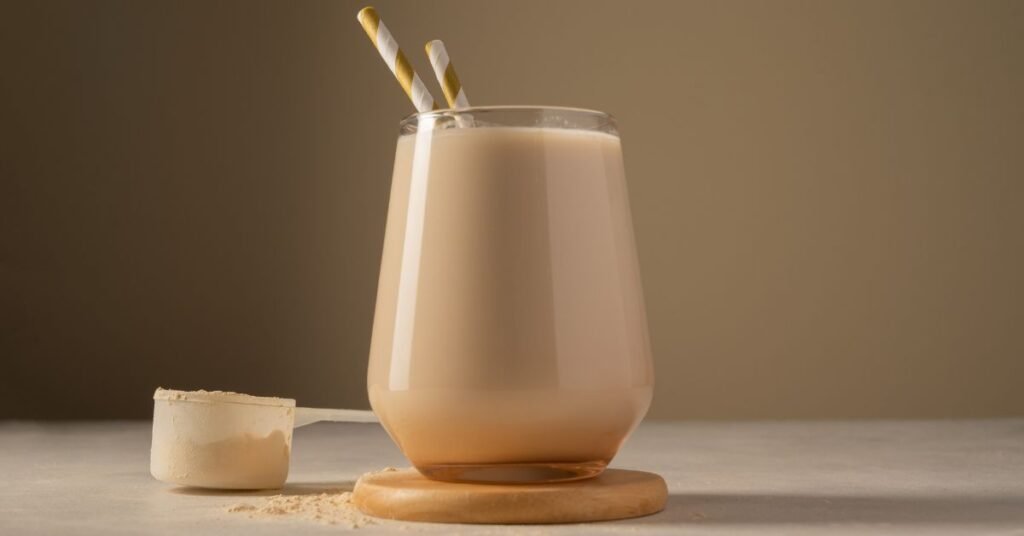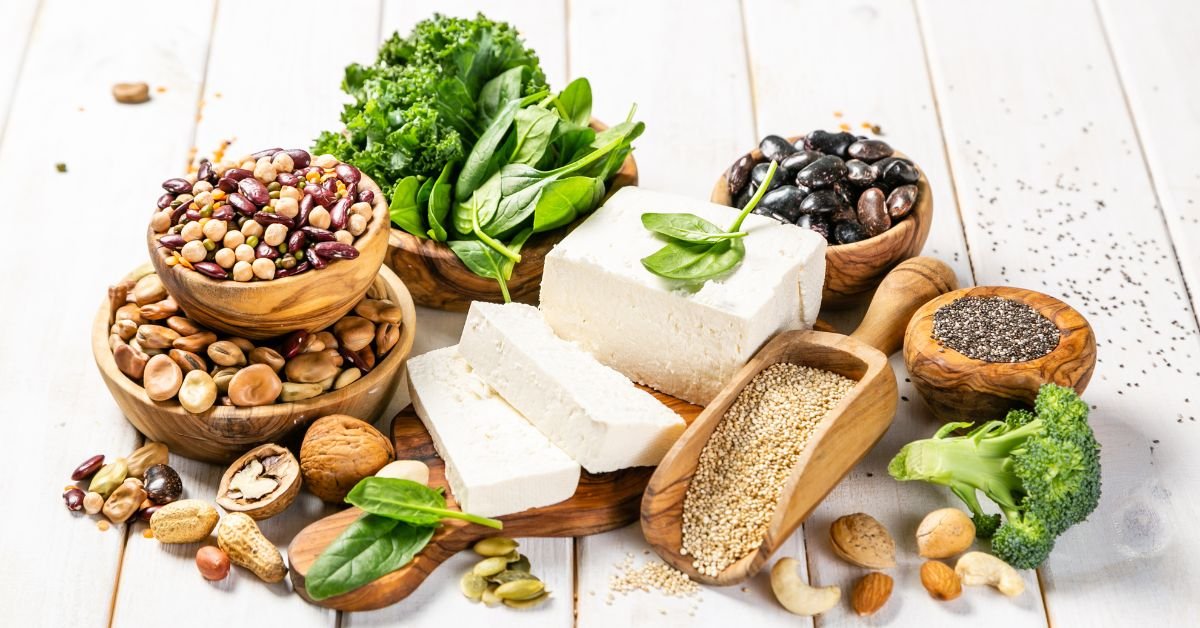Introduction
For vegans, achieving optimal protein intake is often a top priority, especially when working towards fitness goals like muscle growth. Plant-based protein powders offer an efficient, nutrient-rich solution that aligns with vegan principles, yet these supplements also come with unique considerations. This article explores the importance of vegan protein powders, addressing their benefits, potential challenges, and guidelines for making the best choices in your wellness journey.
Benefits of Vegan Protein Powder
Protein Powder Completeness and Muscle Support

One of the biggest benefits of vegan protein powders is their ability to help meet daily protein requirements, crucial for maintaining muscle mass, recovery, and overall health. Research suggests that people looking to build muscle may need up to 1.6–2.2 grams of protein per kilogram of body weight, and vegan diets can make this challenging without thoughtful meal planning.
Vegan protein powders, especially those derived from peas, brown rice, hemp, and soy, are rich in essential amino acids necessary for muscle repair and growth. Blended protein powders often combine multiple sources (like pea and rice protein) to provide a more complete amino acid profile. The convenience of vegan protein powder also allows vegans to meet their protein goals more easily than through whole foods alone.
Convenient and Versatile
For individuals with busy schedules, protein powders offer unmatched convenience. They can be easily incorporated into various recipes—from smoothies and oatmeal to baked goods—ensuring protein intake isn’t compromised, even on hectic days. This convenience factor makes protein powders an accessible option for athletes, fitness enthusiasts, and anyone with a demanding lifestyle who seeks to maintain or enhance muscle growth on a vegan diet.
Aids in Balanced Nutrition
A well-rounded protein powder can contribute to a balanced intake of vitamins and minerals, often enriched with additional nutrients like iron, B12, and calcium. Since some vegans might have difficulty obtaining certain nutrients through diet alone, protein powders with added micronutrients can help fill these gaps. For example, many soy-based powders are naturally high in calcium and iron, both essential for energy levels and bone health.
Challenges of Vegan Protein Powder
Quality Concerns: The Need for High-Quality Protein

While vegan protein powders are beneficial, they aren’t all created equal. Quality is paramount, and choosing a protein powder with minimal additives, artificial ingredients, and heavy metals is essential. Third-party testing and certifications like USDA Organic, Non-GMO Project Verified, and Informed-Sport (for athletes) are indicators of a reliable product. Additionally, sourcing from trusted brands that prioritize organic and non-GMO ingredients can reduce exposure to pesticides and ensure better product integrity.
Complete Protein Profiles and Digestibility
Vegan proteins generally contain fewer complete proteins compared to animal-based sources. Soy protein is one exception, as it contains all nine essential amino acids in adequate amounts. However, if avoiding soy, selecting blends that combine multiple protein sources (e.g., pea and rice) can offer a more balanced amino acid profile. For those with digestive sensitivities, options like sprouted or fermented protein powders can be easier on the stomach, promoting better nutrient absorption without causing bloating or discomfort.
Taste and Texture Preferences
Taste and texture can be a hurdle with vegan protein powders. Plant-based powders often have an earthier taste, which some people find unappealing. However, brands continue to improve flavour profiles and offer options like chocolate, vanilla, and berry. Finding a suitable flavour and texture may involve trying several brands, but the good news is that the range of high-quality, palatable options is expanding rapidly and there are a ton of good options now.
How Vegan Protein Powder Helps Meet Protein Recommendations for Muscle Building
Tailored Protein Intake for Vegan Athletes
For vegan athletes and those focused on muscle-building, protein powders make it easier to achieve specific macronutrient goals. The International Society of Sports Nutrition suggests that athletes consume 1.4-2.0 grams of protein per kilogram of body weight, a range that can be challenging to meet through whole foods alone. Vegan protein powders simplify achieving these targets, especially post-workout when protein synthesis is most efficient.
Boosting Recovery and Minimizing Muscle Breakdown
High-protein meals or shakes taken post-exercise promote muscle protein synthesis and aid recovery by providing amino acids essential for repair. This process is crucial for minimizing muscle breakdown and supporting lean muscle growth. Pea protein, for example, is high in branched-chain amino acids (BCAAs) like leucine, which directly stimulates muscle repair and growth.
Tips for Choosing the Best Vegan Protein Powder
1. Prioritize Complete Amino Acid Profiles
Select protein powders that either contain all essential amino acids or are formulated with complementary proteins. Pea protein and rice protein blends, as well as hemp and pumpkin seed combinations, are examples of powders that deliver a well-rounded profile. Opting for these options can help avoid amino acid deficiencies, which can be a concern with single-source protein powders.
2. Consider Digestibility and Absorption
Digestibility is an important consideration when choosing a protein powder. Options like pea and hemp protein are generally well-tolerated by most individuals. Look for “sprouted” or “fermented” varieties if you experience digestive issues, as these can enhance nutrient bioavailability and reduce potential bloating.
3. Minimize Additives and Choose Clean Labels
Vegan protein powders should ideally have simple ingredient lists with minimal fillers, artificial sweeteners, and preservatives. Opt for natural sweeteners like stevia or monk fruit if needed, and avoid powders with ingredients that are difficult to pronounce or not easily recognizable. Clean, high-quality protein powders may come at a higher price, but they often deliver better results and overall health benefits.
4. Look for Third-Party Testing
To ensure that protein powders are free from contaminants like heavy metals, choosing products with third-party testing can provide peace of mind. Certifications like NSF Certified for Sport, Informed-Choice, and USP Verified are markers of rigorous testing and are especially important for athletes who need assurance of clean ingredients.
5. Experiment with Flavors and Textures
Taste and texture can impact how enjoyable a protein powder is. Many brands offer sample sizes, allowing you to try different flavors and consistencies without committing to a large container. Vanilla and chocolate are versatile flavors that can blend well in various recipes, while unflavored powders are ideal for cooking or savory dishes.
Incorporating Vegan Protein Powder Into a Balanced Diet
Beyond Smoothies: Creative Uses for Protein Powder
Protein powders are extremely versatile and can be used beyond the standard smoothie. Try adding protein powder to oatmeal, pancakes, energy balls, or even savory recipes like soups or stews for an extra protein boost. Mixing it with a non-dairy milk or adding to a post-workout recovery shake are also excellent ways to increase intake without much effort.
Pairing Protein with Other Nutrient Sources
To maximize the benefits of protein powder, pair it with other nutrient-dense foods. For example, adding protein powder to a green smoothie with spinach and chia seeds will not only increase protein but also boost fiber, iron, and omega-3 fatty acids. This combination of macronutrients and micronutrients promotes sustained energy, better digestion, and balanced blood sugar levels.
Conclusion
Vegan protein powders are an invaluable tool for individuals striving to meet protein needs on a plant-based diet, particularly for those focused on muscle building and fitness. With careful selection—prioritizing quality, complete protein profiles, and digestibility—protein powders can support muscle growth, provide essential amino acids, and offer convenient, flexible solutions for achieving a balanced diet. By understanding the benefits and challenges of vegan protein powders and implementing them thoughtfully, vegans can ensure optimal nutrition and take their wellness journey to the next level. Living as a vegan doesn’t have to be difficult and there are lots of resources out there to help.
